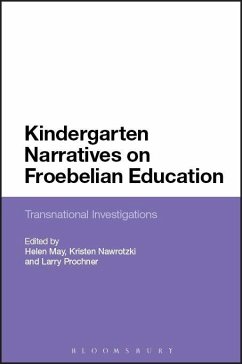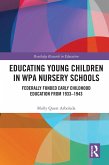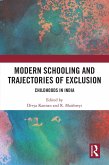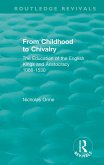Kindergarten Narratives on Froebelian Education showcases the latest scholarship and historical understandings concerning the casting of the kindergarten idea abroad: across cultures, continents and centuries.
Each chapter reveals previously unknown narratives of intrepid endeavour, political pragmatism and pedagogical innovation that collectively provide insight into the transformation of Froebel's ideas on early education into a global phenomenon. Across global contexts, each chapter presents a case study of the ideas scattering abroad, illustrative of the movement of ideas, curricula and pedagogical change; in effect taking the kindergarten beyond the geographies and pedagogies of its German beginnings and borders. Chapters draw on historical examples of Froebelian education from The Netherlands, New Zealand, Japan, Sweden, the UK and the USA.
In the journal History of Education in 2006, Froebelian history scholar Professor Kevin J. Brehony (1948-2013) lamented the 'relative neglect' of the history of early years education at the same time there was a heightened global social and political interest in educating the young child. In this book, an international team of contributors respond to Brehony's suggestion that historical perspectives can play a role in current debates and suggest ways historical narratives might inform policies and practices in twenty-first century early childhood education, care settings and contexts. Reconnecting past lessons and insights with present and future concerns for early education, young children and their place in society, this important collection also includes an historical timeline charting the spread of Froebelian education ideas and kindergartens across the world.
Each chapter reveals previously unknown narratives of intrepid endeavour, political pragmatism and pedagogical innovation that collectively provide insight into the transformation of Froebel's ideas on early education into a global phenomenon. Across global contexts, each chapter presents a case study of the ideas scattering abroad, illustrative of the movement of ideas, curricula and pedagogical change; in effect taking the kindergarten beyond the geographies and pedagogies of its German beginnings and borders. Chapters draw on historical examples of Froebelian education from The Netherlands, New Zealand, Japan, Sweden, the UK and the USA.
In the journal History of Education in 2006, Froebelian history scholar Professor Kevin J. Brehony (1948-2013) lamented the 'relative neglect' of the history of early years education at the same time there was a heightened global social and political interest in educating the young child. In this book, an international team of contributors respond to Brehony's suggestion that historical perspectives can play a role in current debates and suggest ways historical narratives might inform policies and practices in twenty-first century early childhood education, care settings and contexts. Reconnecting past lessons and insights with present and future concerns for early education, young children and their place in society, this important collection also includes an historical timeline charting the spread of Froebelian education ideas and kindergartens across the world.









